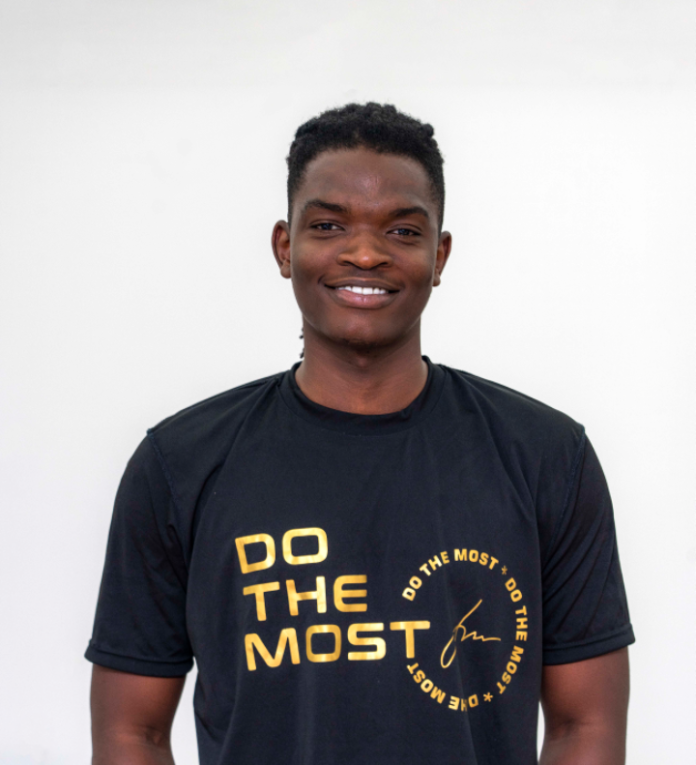Why the name Patricia and also why Bitcoin?
In 2015,I received Bitcoin from his uncle, but he could not find a place to sell them online or offline. He ended up on a peer to peer (P2P) platform and got ripped off. This made him realize that there are many other Nigerians and Africans like himself, who have a hard time exchanging their Bitcoin for value. This birthed the dream to create a trusted ecosystem for users like himself, known today as Patricia. Patricia is the name Hanu’s grandfather always teased his grandmother with even though her name was Patience. It was always fun for him (Hanu) watching his grandfather get under his grandmother’s skin. Having his dream child (Patricia) bear the name is one way to keep those memories alive and carry home with him anywhere he goes.
Patricia; How long have you been in Nigeria?
Born out of Nigeria, for three years and counting (August 16th, 2021 will be our fourth year), Patricia shares a special bond with the Nigerian market. We will always try to ensure that our features and builds can cater to the bubbling and ever-growing crypto market base in the country, a very healthy percentage of our users are in Nigeria. We intend to strengthen that bond by listening to the customers and trying to solve their problems by making crypto trades as easy as washing your hands.
Bitcoin and cryptocurrencies are a bit dicey in Nigeria considering the government position, how are you handling this?
What we are trying to do is simple. We are building simple and convenient solutions to rewrite people’s financial experiences in simple and accessible ways. Although due to the regulations we’ve been forced to scale faster than we planned. The first thing we thought of when we got wind of the CBN love letter in February 2021, was the safety of customers’ funds. We expected a lot of panic actions. We quickly deployed many educational materials to educate our customers on what the policy meant and how it affected them. After the initial uncertainty, I would say the market has adjusted to the current realities.
Do you think that there is sufficient awareness here?
No. Not even globally as everyone is still an early adopter of cryptocurrencies. This is because digital money hit the limelight when? Circa 2017, when the value of one BTC hit $10k. There is a lot of chatter around Crypto but not enough people are adopting it as fast as it should be adopted, why? The idea of Crypto is complex, it’s almost as if it is reserved for a select few. This is why we (Patricia) are in business, to not only provide people with a safe and seamless platform where they can trade, but to also educate enthusiasts and everyone at large what crypto is about, and how it is the future of digital payments and settlements.

You are no Bank, but more, can you explain this?
We like to think that when man gets to Mars and finally becomes a multi-planetary species; man wouldn’t be spending fiat. We would need something not physical and we believe that cryptocurrency would be a perfect substitute. Getting from where we are now to Mars is going to be a long transitional phase and this is where we come in. At Patricia, our goal is to make Crypto easy for the world. We have successfully done it in Africa, 60-year-old Nigerian Mothers use Patricia to send money via crypto to their kids in Europe and other parts of the world. Infusing Crypto into the day-to-day lives of people brings crypto from its high horse and levels the playing field. Activities such as withdrawing Crypto from ATM machines worldwide with the Patricia Bitcoin Debit card, paying electricity bills, tv subscriptions, sports betting, buying gift cards all using crypto, show that there’s a lot we can do with crypto if we open ourselves up to it.This is our vision.
Do you think that you have the disruptive technology that will revolutionize the digital ecosystem?
We definitely do. The thing is this, we are never relenting when it comes to engineering and product innovations, our drive is to solve problems globally and we are building a super app that will one day be all you need to carry out your daily activities.
You have your app in Apple and Google store, how many downloads and usage have you had since you opened shop in Nigeria?
We launched the Patricia App (both Mobile and web versions) in March 2020. And since then, we’ve been able to garner over 500k active users and over One hundred thousand downloads from both iOS and Google stores.
Do you think that Nigerians are embracing blockchain technology and cryptocurrency?
Absolutely so. Nigerians are growth drivers personally; a lot have gone out of their way to self-learn a lot about what cryptocurrencies are. Hence, not a lot has changed for the market in recent times, more than ever, a lot more people are interested and buying into the crypto space now. Nigeria is the second-largest Bitcoin market in the world. This alone gives you a clear-cut picture of our level of acceptance. Recent policies haven’t deterred us (Nigerians) as one would expect. Rather it has sparked more conversations and curiosity and now we have Nigerian creators embrace NFTs, which has put the works before a global audience. It is incredible. The future is now!
Tell us about Patricia’s Debit card and how it is different from a conventional debit card? You do gift cards for corporations; how does it work and how has this been accepted?
The Patricia Bitcoin debit card was the first-ever introduced in Africa and it helped our customers understand what we meant when we said our goal is to make crypto easy. It works just like your regular card, but it charges your bitcoin wallet and not your bank account. With respect to gift cards, Glover has taken up all non-crypto services that existed within the Patricia ecosystem.
You encouraged Nigerians to use bitcoin for daily transactions but there are government policies on bitcoin and CBN is yet to come to terms with it. How do you handle this?
We are eager to help usher the government into the benefits of blockchain and cryptocurrencies. The opportunities and benefits are endless, blockchain can be applied in all areas; Healthcare, Transportation, Social Services, Data management. We would continue to advocate and educate the public on the benefits of embracing blockchain and we are positive that we would get there faster than we imagined.
What is your advice to CBN and financial policymakers on the best way to adopt bitcoin as a mode of transaction and payment?
Stakeholders’ conversations are ongoing within and outside the corridors of the authorities, and we are confident of a seamless handshake at the end of it all.
You are encouraging Nigerians to use bitcoins to buy things like recharge cards, airtime, and pay bills. How did you convince these organizations to key into bitcoin?
We’ve made Bitcoin easy, so it was just an open and shut case of bringing them to understand the positive effects of digital payments powered by Bitcoin. This is exactly why we were established and we are making strides in this area.
Is Bitcoin the future of money considering how volatile it is and not supported by government regulations?
You see, where it concerns cryptocurrencies in general, they all serve different purposes. And every economy in the world definitely has different needs. This means that each government will adopt the ones that are best progressive for its people. In regards to Bitcoin, the first small step in that direction was taken by the El Salvadoran president a few weeks ago. If a small country of 10million people can transact daily using Bitcoin. It’s just a matter of time before the rest of the world agrees that it has potential.
What we are trying to do is simple. We are building simple and convenient solutions to rewrite people’s financial experiences in simple and accessible ways. Although due to the regulations we’ve been forced to scale faster than we planned. The first thing we thought of when we got wind of the CBN love letter in February 2021, was the safety of customers’ funds. We expected a lot of panic actions. We quickly deployed many educational materials to educate our customers on what the policy meant and how it affected them. After the initial uncertainty, I would say the market has adjusted to the current realities.








